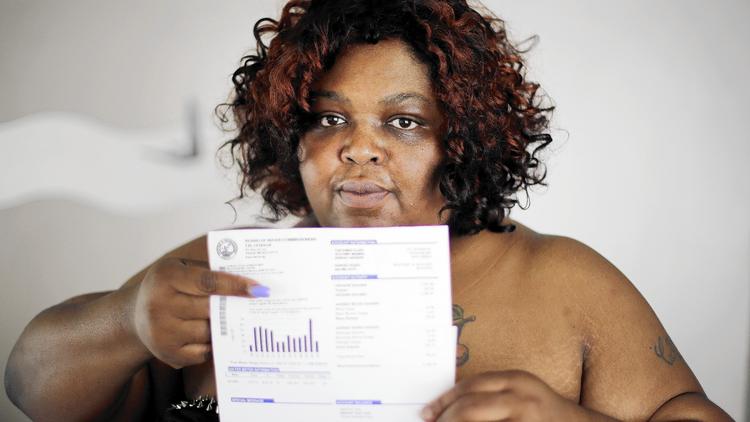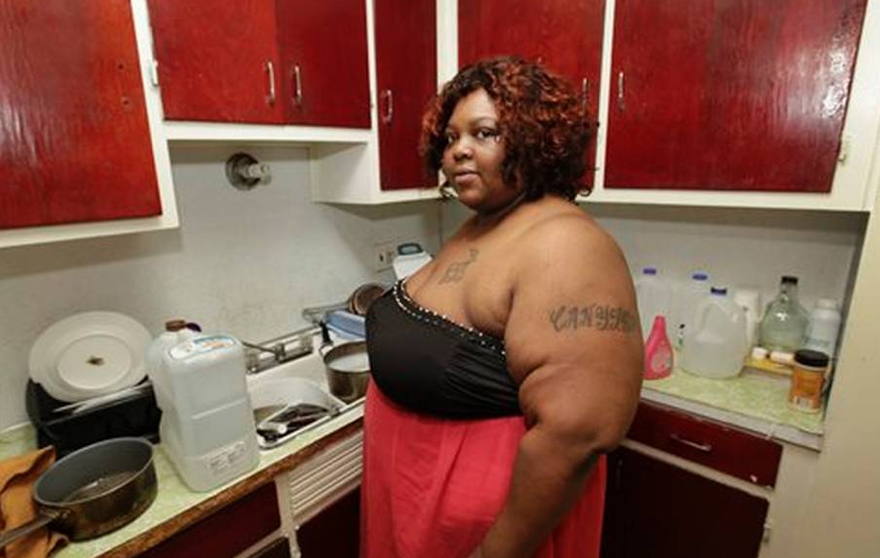SBPDL
June 30, 2014
“It’s frightening, because you think this is something that only happens somewhere like Africa.”
So the Associated Press quoted Nicole Hill, a black single mother in 83 percent black Detroit.

Detroit is Africa.
Africa is Detroit.
In 1910, Detroit was 98.6 percent white.
In 1920, Detroit was 96 percent white.
In 1930, Detroit was 92.8 percent white.
By 1950, Detroit was 83.8 percent white.
By 1970, Detroit was 52.3 percent white.
By 1980, Detroit was only 37 percent white.
By 1990, Detroit was down to 24.3 percent white.
By 2010, Detroit is roughly 7.8 percent white.
In 1910, Detroit was 1.4 percent black. Each subsequent decade saw the percentage of the black population grow, until it reached a level where life for white became untenable in the city.
It had regressed to the black mean.
Today, Detroit is 83 percent black.
Western civilization, which blacks cannot create nor sustain when left to their own devices, has eroded away in Detroit. [Thousands go without water as Detroit cuts service for nonpayment, Los Angeles Times, 6-29-14]:
It has been six weeks since the city turned off Nicole Hill’s water.
Dirty dishes are piled in the sink of her crowded kitchen, where the yellow-and-green linoleum floor is soiled and sticky. A small garbage can is filled with water from a neighbor, while a bigger one sits outside in the yard, where she hopes it will collect some rain. She’s developed an intricate recycling system of washing the dishes, cleaning the floor and flushing the toilet with the same water.

“It’s frightening, because you think this is something that only happens somewhere like Africa,” said Hill, a single mother who is studying homeland security at a local college. “But now I know what they’re going through — when I get somewhere there’s a water faucet, I drink until my stomach hurts.”
Hill is one of thousands of residents in Detroit who have had their water and sewer services turned off as part of a crackdown on customers who are behind on their bills.
In April, the city set a target of cutting service to 3,000 customers a week who were more than $150 behind on their bills. In May, the water department sent out 46,000 warnings and cut off service to 4,531. The city says that cutting off water is the only way to get people to pay their bills as Detroit tries to emerge from bankruptcy — the utility is currently owed $90 million from customers, and nearly half the city’s 300,000 or so accounts are past due.
But cutting off water to people already living in poverty came under criticism last week from the United Nations Office of the High Commissioner for Human Rights, whose experts said that Detroit was violating international standards by cutting off access to water. “When there is genuine inability to pay, human rights simply forbids disconnections,” Catarina de Albuquerque, the office’s expert on the human right to water and sanitation, said in the communique.
Water is not a right.
A peaceful community is not a right, but a reflection of the type of behavior found (and tolerated) among the citizens who call it “home.”
Just as the infant mortality rates of 83 percent black city rival those of “third world countries,”because the city of Detroit boasts a third world population. [Infant mortality rate in Detroit rivals areas of Third World, Detroit News, 1-30-2014]
The conditions of Detroit, an 83 percent black city, has the exact same quality of life as that found in African nations.
There’s nothing frightening about the outcome; what’s frightening is that we continue to ignore the genetic realities behind Detroit’s demise.
 Daily Stormer The Most Censored Publication in History
Daily Stormer The Most Censored Publication in History


